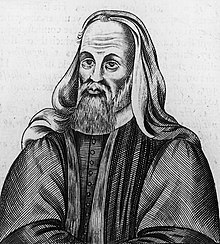Our website is made possible by displaying online advertisements to our visitors.
Please consider supporting us by disabling your ad blocker.
Pelagianism

| Pelagianism |
|---|
| History |
| Proponents |
| Opponents |
| Doctrines |
|
Pelagianism is a Christian theological position that holds that the fall did not taint human nature and that humans by divine grace have free will to achieve human perfection. Pelagius (c. 355 – c. 420 AD), an ascetic and philosopher from the British Isles, taught that God could not command believers to do the impossible, and therefore it must be possible to satisfy all divine commandments. He also taught that it was unjust to punish one person for the sins of another; therefore, infants are born blameless. Pelagius accepted no excuse for sinful behaviour and taught that all Christians, regardless of their station in life, should live unimpeachable, sinless lives.
To a large degree, "Pelagianism" was defined by its opponent Augustine, and exact definitions remain elusive. Although Pelagianism had considerable support in the contemporary Christian world, especially among the Roman elite and monks, it was attacked by Augustine and his supporters, who had opposing views on grace, predestination and free will. Augustine proved victorious in the Pelagian controversy; Pelagianism was decisively condemned at the 418 Council of Carthage and is regarded as heretical by the Roman Catholic Church and Eastern Orthodox Church. For centuries afterward, "Pelagianism" was used in various forms as an accusation of heresy for Christians who hold unorthodox beliefs, but some recent scholarship has offered a different opinion.
Previous Page Next Page


